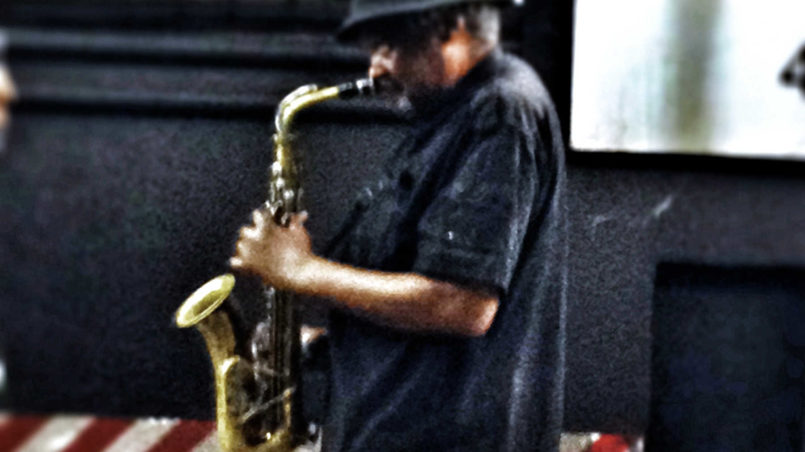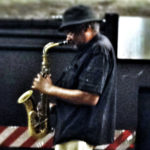Bury My Heart at the Wounded Knee

Afterwards, outside the wooden fortress walls in the bowels of the make-believe Wild West village it was hard to get through the crowds of autograph hunting fans, and past the wide eyes of the kids whose devotional demeanour scared me a little. Then I went with Sam Hawkins, Old Firehand, Kleki Petra and a bunch more Indians and settlers to the local inn to passionately enjoy the produce that gives the region ‘Weinviertel’ its name.
(from: Adolescent Stumblings)
Despite having had a blast, I was somehow disturbed by the way the whole issue was treated, and how purely fictional content could inspire such emotions in people. I knew nothing about the Native Cultures&Minds, but was constantly faced with people who claimed they did, based on highly dubious literary information.
And so I quit after the second season, having firmly made up my mind that, from now, I would only engage in content relating to a reality actually verifiable and closer to home. The Indian issue receded into the background together with various other pubescent follies, exited the scene, and rode into the sunset. I did not even pack ‘Bury my heart at the Wounded Knee’, the deeply moving and historically valuable account of genocide, which I had kept on my bedside table (next to Rilke and Sartre) when I set out on my next fateful trip.
My London years actually started during a diving vacation on a tiny island in the Indian Ocean where I met my future London host family. Suffice to say: two months before the Berlin Wall collapsed, I found myself living in Brondesbury Park, attending an excellent West Hampstead school, and living a crazy Bohemian, yet highly productive life in the mother of all great modern cities.
It was 4 am when the phone rang in the corridor in the upstairs apartment I shared with several others. Stumbling out of bed, I tripped over the Yucca, knocked over a stacks of books, and managed to wake up everyone not already angrily stirred by the shrieking phone. It was actually for me: “Hey, Amigo, guess who has moved into your old room?!“, the voice of Hugo, my former Austrian landlord and employer, boomed a little inebriated in my ear. “It’s…too early…Hugo, what’s going on?” , I just wanted to hang up. “It’s Jim, Jim Pepper!” he laughed, “What, my Jim Pepper??” I thought he had lost his mind. “Yes, yes, wait, I put him on…“. There was a pause of static crackling, then a slow, deep voice, sounding somewhat weary after a long night but gently smiling: “Hello, I appreciate the book you left. I will be here for a while, see you!”
Hugo had for some time been running a bar and jazz club in Mödling (a town south of Vienna) and had helped Harti and me to put on a jazz festival in our village. When things got too complicated for me with my family, he gave me a place to stay, his kids to babysit, and a job at the club.
In the morning I got my tickets, and a few days later I walked through the always open patio door into the living room of the house in Breitenfurt. There stood Jim, in boxer shorts, two screaming little kids, Dorina and Dario, dangling from his arm and neck, his long grey-silver-white hair flying all over the place.
“Glad you are here,” he said.
We ignored the kids for a while and had a smoke. Introductions were not necessary. I asked him to play his saxophone, and he did there and then. The kids calmed down, and I cried and laughed. In the late afternoon Hugo returned, the Toni Waldron trio joined later, and the subsequent evening lasted two and a half days. My memories are sketchy, but when sunlight broke the horizon on the third morning, we were sitting alone on the old wooden bench, strangely sober despite the brandy in our glasses, and he said with a broad smile: “One day you will be with my people.”
Hugo, Harti and I ran the bar, and despite it being packed beyond capacity, everything flowed like in a perfect trance. People sang the Indian lyrics to Jim’s songs. At one point he stopped midway through a song from the album ‘Comin’ and Going’, but it continued with the voices of the crowd, Jim’s teary eyes and smile hidden behind the long hair swaying in the smoky air as he gently danced in silence.
Jim continued on his tour, playing his music, until he passed away a year later.
Stay tuned for another article from this series, coming soon …
Credits
| Image | Title | Author | License |
|---|---|---|---|
 |
Bury my heart at wounded knee | Bryan Pocius | CC BY 2.0 |

[…] (from: Bury my Heart at the Wounded Knee) […]